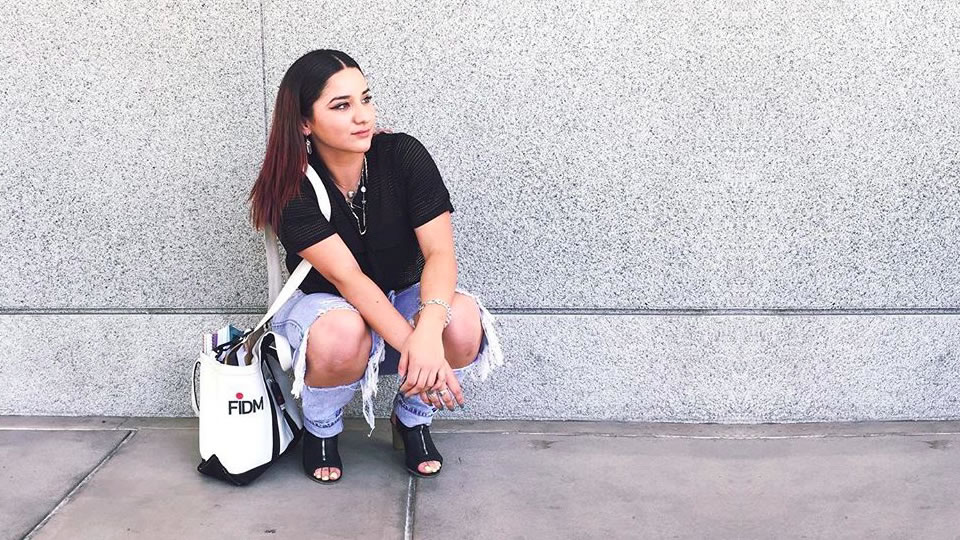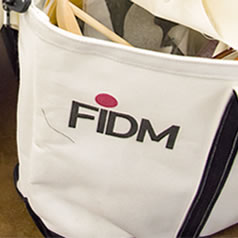
Disability Accommodations & Grievance Policy
Disability Accommodation & Grievance Policy
- Statement of Non-Discrimination and
Accommodation
- FIDM/Fashion Institute of Design & Merchandising ("FIDM") does not discriminate on the basis of disability.
- Individuals with disabilities are entitled to a reasonable accommodation to ensure that they have full and equal access to the educational resources of FIDM, consistent with Section 504 of the Rehabilitation Act of 1990 (29 U.S.C. § 794) (“Section 504”) and the Americans with Disabilities Act (42 U.S.C. § 12182) (“ADA”) and their regulated statutes and regulations and corresponding state and local laws.
- Section 504 prohibits discrimination on the basis of disability in any program or activity receiving federal financial assistance. The ADA prohibits a place of public accommodation from discriminating on the basis of disability. The applicable law and regulations may be examined in the office of the ADA/504 Compliance Coordinator, who has been designated to coordinate the efforts of FIDM to comply with Section 504 and ADA.
- ADA/504 Compliance Coordinator: Kim Wetzel, 919 South Grand Avenue, Los Angeles, California 90015; 213.624.1200 ext. 3530; kwetzel@fidm.edu
- Requests for Accommodation
- Individuals with disabilities wishing to request a reasonable accommodation must contact the ADA/504 Compliance Coordinator. A disclosure of a disability or a request for accommodation made to a faculty or staff member, other than the ADA/504 Compliance Coordinator, will not be treated as a request for an accommodation. However, if a student discloses a disability to faculty or staff member, they are required to direct the student to the ADA/504 Compliance Coordinator.
- The ADA/504 Compliance Coordinator will provide a student or applicant with a Request for Accommodation Form. To help ensure timely consideration and implementation, individuals requesting an accommodation are asked to contact the ADA/504 Compliance Coordinator and/or submit a Request for Accommodations form at least two weeks prior to when the accommodation is needed.
- Individuals requesting reasonable accommodations may be asked to provide medical documentation substantiating the physical and/ or mental impairment(s) and the need for the requested accommodation(s), including, but not limited to when the limitation or impairment is not readily apparent and/or a requested accommodation does not clearly relate to the impairment(s).
Such documentation should specify that an individual has a physical or mental impairment and how that impairment substantially limits one or more major life activities. In general, the supporting documentation must be dated less than three years from the date a student requests a reasonable accommodation and must be completed by a qualified professional in the area of the student’s disability, as enumerated below: - After the ADA/504 Compliance Coordinator receives the Request Form and the required documentation, they will engage the student or applicant in an interactive process to determine what accommodations may be reasonable.
- The ADA/504 Compliance Coordinator will maintain a list of all students receiving accommodations and will coordinate the implementation of those accommodations with each student’s instructors at the beginning (or in advance) of each quarter.
- Students may file a grievance using the Grievance Process below or may file a complaint with the U.S. Department of Education’s Office for Civil Rights or a similar state entity.
- FIDM will make appropriate arrangements to ensure that disabled persons are provided other accommodations, if needed, to participate in this grievance process. The ADA/504 Compliance Coordinator will be responsible for such arrangements.
Disability Qualified Professional Physical disability MD, DO, NP Visual impairment MD, ophthalmologist, optometrist Mobility, orthopedic impairment MD, DO, NP Hearing impairment MD, Audiologist (Au.D) *audiology exam should not be more than a year old Speech and language impairment Licensed speech professional Learning disability PhD Psychologist, college learning disability specialist, and/or other appropriate professional Acquired brain impairment MD neurologist, neuropsychologist Psychological disability Psychiatrist, PhD Psychologist, LMFT or LCSW ADD/ADHD Psychiatrist; PhD Psychologist, LMFT or LCSW Other disabilities MD, DO, or NP who practices or specializes within the field of the disability.
Documentation used to evaluate the need and reasonableness of potential accommodations may include a licensed professional’s current medical diagnosis and date of diagnosis, evaluation of how the student’s disability affects one or more of the major life activities and recommendations, psychological and/or emotional diagnostic tests, functional effects or limitations of the disability, and/or medications and recommendations to ameliorate the effects or limitations. FIDM may request additional documentation as needed.
In general, FIDM does not consider an Individualized Education Program (“IEP”) as sufficient medical documentation to evaluate the need and reasonableness of potential accommodations. However, we will consider a current IEP (less than three years old) as reasonable medical documentation for students who request the following accommodations: (1) a test reader or (2) a quiet place to take a test. Any other requested accommodation(s) will require medical documentation completed by a qualified professional in the area of the student’s disability, as specified in the chart located within this policy.
- Grievance Process
- FIDM has adopted an internal grievance procedure providing for prompt and equitable resolution of complaints alleging any action prohibited by Section 504 and/or the ADA.
- Any person who believes they have been subjected to discrimination on the basis of disability, including disagreements regarding requested accommodations, may file a grievance pursuant to the procedure outlined below.
- Procedure
- Grievances must be submitted to the Vice President of Education, Barbara Bundy, 919 South Grand Avenue, Los Angeles, California 90015; 213.624.1200, ext. 3000; bbundy@fidm.edu. Grievances must be submitted within thirty (30) days of the date the person filing the grievance becomes aware of the alleged discriminatory action.
- Grievances must be in writing, containing the name and address of the person filing it. The complaint must state the problem or action alleged to be discriminatory and the remedy or relief sought.
- FIDM will investigate the complaint and will not retaliate against anyone who files a grievance or cooperates in the investigation of the grievance.
- All reasonable effort will be made to provide a written determination to the student or applicant within (30) days after its filing. If a written determination cannot be made within (30) days of the complaint’s filing, the student or applicant will be advised and provided an update as to the status of the investigation at reasonable intervals.
- Based on the results of the investigation, FIDM will take all appropriate actions to prevent any reoccurrence of discrimination and/or to correct any discriminator effects.
- The availability and use of this grievance procedure does not prevent an individual from filing a complaint or discrimination on the basis of a disability with the U. S. Department of Education’s Office of Civil Rights and/or a similar state agency.
